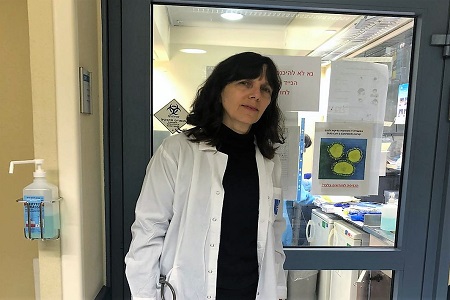
For the first time in Israel, Hadassah Hospital Ein Kerem is collecting plasma from recovered COVID-19 patients in an effort to produce a serum that may help seriously ill coronavirus patients.
Prof. Dana Wolf, an international expert in infectious diseases, has set up a system that examines the plasma for the antibodies. Prof. Wolf, who has been running Hadassah’s enlarged and nationally important laboratory for the last two months, is using serology, the study of blood serum, to detect the time and type of infection, as well as the quantity of antibodies produced against the coronavirus.
In the early stages of the virus, the body produces the antibody IgM. When detected in the blood, IgM shows that the patient has an active disease. Within a week of contracting the infection, the body begins producing another antibody called IgG. As levels of IgG increase, it reveals that there has been an infection in the past. This has great importance because it can tell researchers if the body has become immune to the virus. Usually, this antibody stays in the blood for over a year after the infection. If IgG levels remain high, that indicates the person can’t be re-infected.
The antibodies of 13 patients in one of the hotels designated for those recovering from COVID-19 have already been examined. Approximately 75 percent have a high level of antibodies. Researchers will use their plasma to produce a serum to treat critically ill patients on ventilators.
Hadassah is also working with Edah Haridit, a local ultra-Orthodox organization, to collect samples in religious neighborhoods hit hard by COVID-19. The organization’s leadership and young volunteers are enthusiastic about this initiative helping to save lives.
